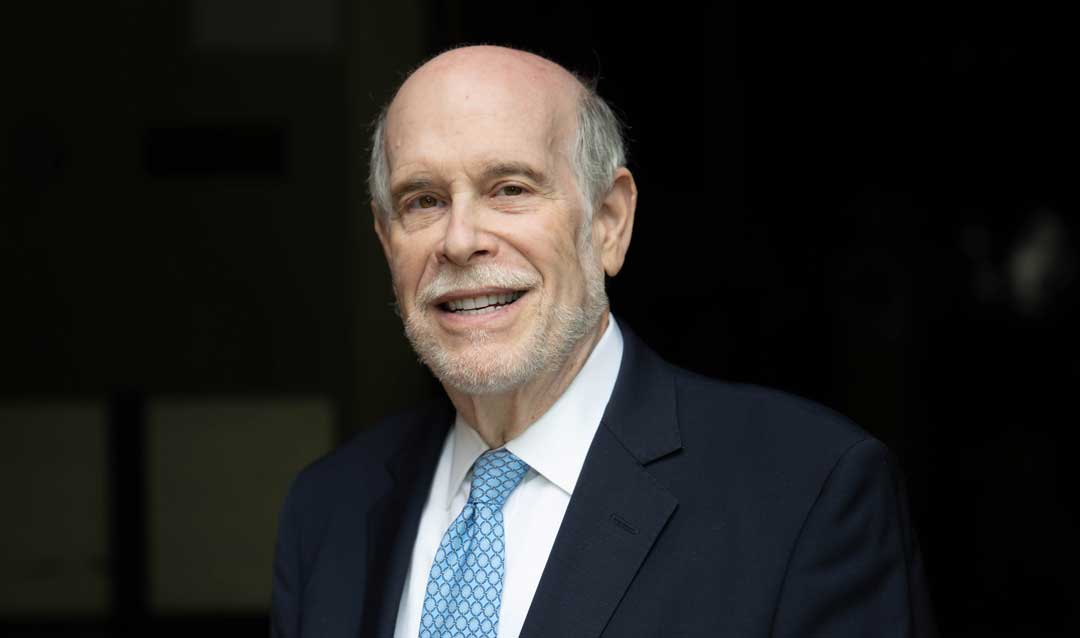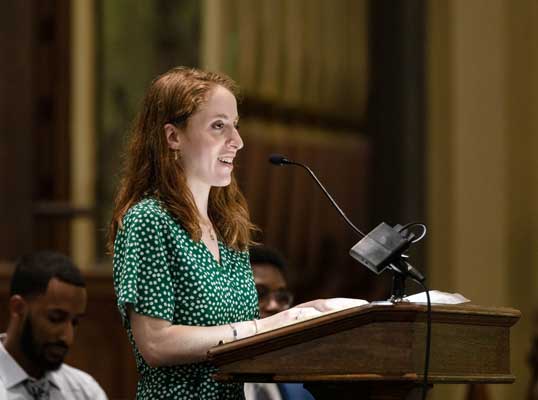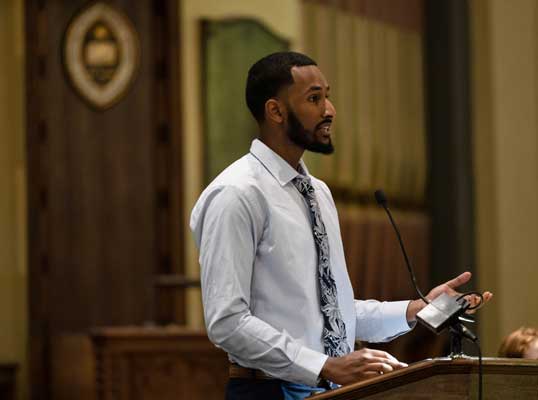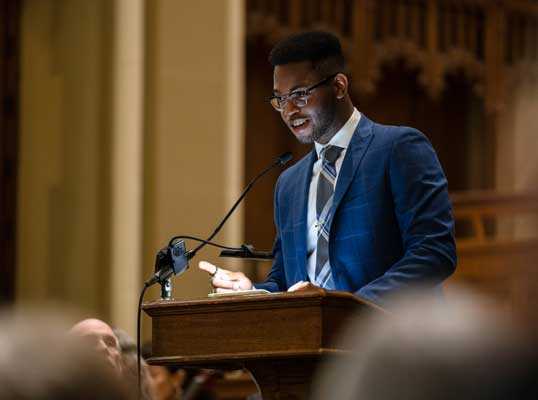Drawing on the history of the Civil War and Abraham Lincoln’s military, political and moral leadership, renowned historian Harold Holzer used one of the late President’s favorite sayings to advise graduates during Saturday’s Baccalaureate to “pluck a thistle and plant a flower where a flower will grow” as they go out into the world after Lehigh.
Holzer, the Jonathan F. Fanton Director of the Roosevelt House Public Policy Institute at Hunter College, is a leading authority on Lincoln and the political culture of the Civil War era.
“I’m delighted to be sharing the event with you, and deeply grateful that you’ve asked me to reflect a bit on my own specialty—the life of Abraham Lincoln and the history of his times—on this historic weekend in your life and times,” Holzer said to the audience gathered inside Packer Memorial Church on a cloudy spring evening.
The founding of Lehigh tells a story about the America that recalibrated itself after the Civil War, Holzer said. This postwar period shined a light on the possibilities of America’s future, one of which was making higher education available to all, as it is at Lehigh, he said.
“I’m not suggesting it became a perfect union, but it did become a more perfect union, the product of unimaginable sacrifice of life and treasure in the Civil War, expended on the Union side, to make sure we lived up to the original promise,” Holzer said. “The nation’s founders found it so easy to articulate, but so difficult to fulfill: that all people are created equal. In many ways, it’s no less challenging to live up to that elusive potential now than it was in the year of Lincoln’s death and Lehigh’s birth: 1865,” he said.
Two of Lincoln’s best-remembered speeches were delivered seven years apart: one before the war began and the other as it was winding down.
In 1858 Lincoln famously warned that “A house divided against itself cannot stand,” and he turned out to be right, Holzer said. The war came at a huge cost, yet with 750,000 people dead and slavery eradicated, Lincoln urged not retribution, but “malice toward none and charity for all.”
It’s a choice Americans of today have yet to fully make: whether to divide or unite, he said.








